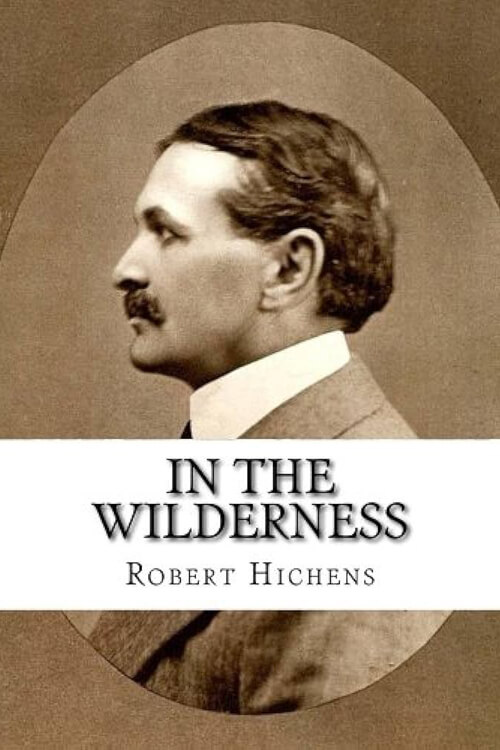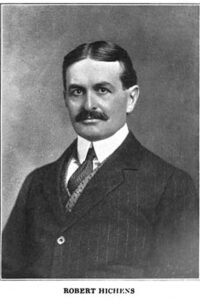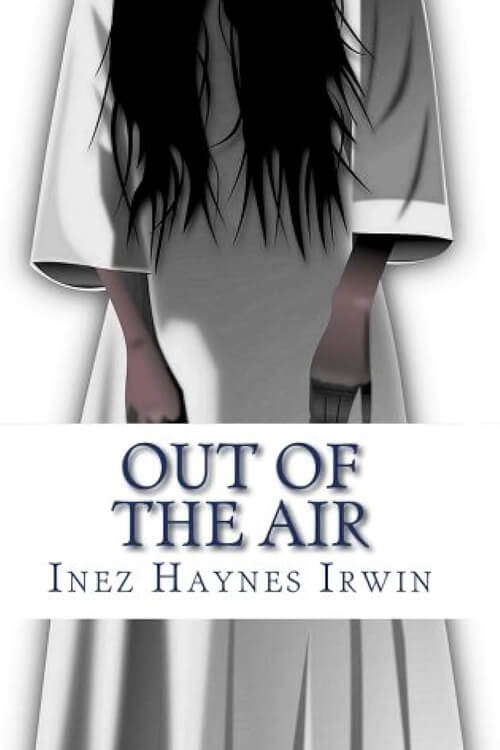
In the Wilderness
Amedeo Dorini, the hall porter of the Hotel Cavour in Milan, stood on the pavement before the hotel one autumn afternoon in the year 1894, waiting for the omnibus, which had gone to the station, and which was now due to return, bearing—Amedeo hoped—a load of generously inclined travelers. During the years of his unpleasant servitude, Amedeo had become a student of human nature. He had learned to judge shrewdly and soundly, to sum up quickly, to deliver verdicts which were not unjust. And now, as he saw the omnibus, with its two fat brown horses, coming slowly along by the cab rank, and turning into the Piazza that is presided over by Cavour’s statue, he prepared almost mechanically to measure and weigh evidence, to criticize and come to a conclusion.
He glanced first at the roof of the omnibus to take stock of the luggage pile there. There was plenty of it, and a good deal of it was leather and reassuring. Amedeo had a horror of tin trunks—they usually gave such small tips. Having examined the luggage he sent a searching glance to two rows of heads which were visible inside the vehicle. The brawny porters hurried out, the luggage chute was placed in position, the omnibus door was opened, and the first traveler stepped forth.
A German of the most economical type, large, red, and wary, with a mouth like a buttoned-up pocket, was followed by a broad-waisted wife, with ragged hair and a looped-up gown. Amedeo’s smile tightened. A Frenchman followed them, pale and elaborate, a “one-nighter,” as Amedeo instantly decided in his mind. Such Frenchmen are seldom extravagant in hotels. This gentleman would want a good room for a small price, would be extremely critical about the cooking, and have a wandering eye and a short memory for all servants in the morning.
An elderly Englishwoman was the fourth personage to appear. She was badly dressed in black, wore a tam-o’-shanter with a huge black-headed pin thrust through it, clung to a bag, smiled with amiable patronage as she emerged, and at once, without reason, began to address Amedeo and the porters in fluent, incorrect, and too carefully pronounced Italian. Amedeo knew her—the Tabby who haunts Swiss and Italian hotels, the eternal Tabby drastically complete.
A gay Italian is gaiety in flight, a human lark with a song. But a gloomy Italian is oppressive and almost terrible. Despite the training of years Amedeo’s smile flickered and died out. A ferocious expression surged up in his dark eyes as he turned rather bruskly to scrutinize without hope the few remaining clients. But suddenly his face cleared as he heard a buoyant voice say in English:
“I’ll get out first, Godfather, and give you a hand.”
Read or download Book
Robert Smythe Hichens
Robert Hichens (Robert Smythe Hichens, 14 November 1864 – 20 July 1950) was an English journalist, novelist, music lyricist, short story writer, and music critic who collaborated on successful plays. He is best remembered as a satirist of the “Naughty Nineties”.
Biography
Hichens was born in Speldhurst in Kent, the eldest son of the Rev. Frederick Harrison Hichens, and his wife Abigail Elizabeth Smythe. He was educated at Clifton College the Royal College of Music and early on had a desire to be a musician. Later in life, he would become a music critic on The World, taking the place of George Bernard Shaw. He studied at the London School of Journalism. Hichens was a great traveler. Egypt was one of his favorite destinations – he first went there in the early 1890s for his health. For most of his later life, he lived outside England, in Switzerland and the Riviera. Hichens was a homosexual he never married.
Hichen’s first novel, The Coastguard’s Secret (1886), was written when he was only seventeen. He first became well known among the reading public with The Green Carnation (1894), a satire of Hichens’s friends Oscar Wilde and Lord Alfred Douglas; since the work made clear Wilde was homosexual it was withdrawn from publication in 1895, but not before helping set the stage for Wilde’s public disgrace and downfall.
Hichens was also friends with several other writers, including E. F. Benson and Reggie Turner, as well as the composer Maude Valérie White.
Hichens’s first big success was An Imaginative Man (1895); set in the city of Cairo, Egypt, a place that fascinated Hichens, it is a study of insanity, in which the hero becomes dangerously obsessed with the Great Sphinx. Other early fiction includes The Folly of Eustace (1896), a collection of stories including some supernatural Flames (1897), a story resembling Dr. Jekyll and Mr. Hyde The Londoners (1898), a satire about decadent London The Slave (1899), a fantasy about an amazing emerald Tongues of Conscience (1900), a collection of five horror stories including “How Love Came to Professor Guildea” (this story is about a supernatural visitation and is thought by some to be Hichens’s best fiction – it is frequently anthologized). “How Love Came to Professor Guildea” was not initially well-received, with Frederic Taber Cooper calling the story “a hideous bit of morbidity” and Edmund Wilson dismissing the story as “trash”. Later reviews of the story were more positive; J. A. Cuddon called it “outstanding” and compared it with “The Horla” by Guy de Maupassant and “The Beckoning Fair One” by Oliver Onions. Brian Stableford described the story as an “authentic masterpiece of horror fiction”, and Jason Colavito called it “possibly one of the greatest stories of its age”.
Hichens’s Felix (1902), is an early fictional treatment of hypodermic morphine addiction, while The Garden of Allah (1904) sold well internationally, and was made into a film three times.
Hichens published his memoirs in 1947, Yesterday.






